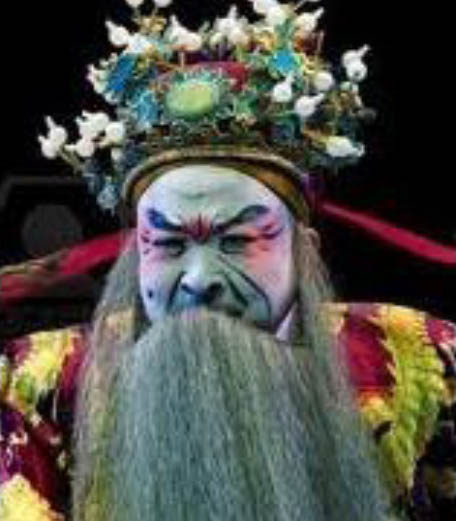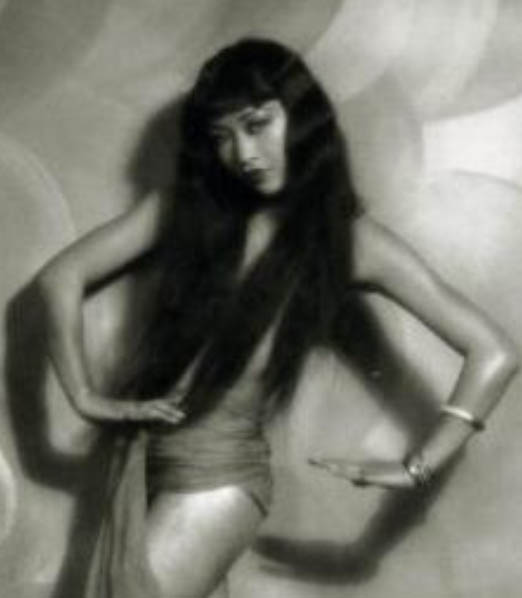|
|
THE MISSING CHAPTER The
finalists in our Literary Competition on the chapter that was excised
(i) "Chinatown" by Rob Douglass (on this page) (ii) "Batten Down the Hatches" by Sandra Darroch (iii) "Coffee and Camouflage" by Lindsay Foyle |
|
(i)
Chapter X "Chinatown"
It would be several hours before the train to Mullumbimby and he was at a loose end. A small Chinese urchin accosted him: "Mister Somers" he understood the boy to say and the boy pushed an envelope into Somers hand. In it was a note, beautifully written in English in an elegant script on hand made paper. It read: "Mr Richard Somers If you could kindly take a little time out of your busy schedule, a humble person would very much like to acquaint you with some information which may be of interest to you and possibly beneficial." The signature was a
Chinese "chop" indecipherable by Somers. However there
was an address in Dixon Street, just around the corner from where
Somers had received the note. They looked at Somers out of the corners of their slit eyes. One of them straightened up and pointed Somers to the doorway on the opposite side of the courtyard, without a word. Somer entered into the rear room, which was smoky and heavy with sandalwood incense. There he encounters a fearsome character:
However the apparition smiled at Somers and said in perfect Oxford English, "Mr Somers, how kind of such a distinguished English literary luminary to grace my humble premises. Please take a seat." As Somers sat in a comfortable chair, the apparition clapped his hands and immediately a Chinese man entered,wearing a black silk pajama suit with some sort of elaborate embroidered black working on it, edged in red piping with a black matching skullcap.
He put what Somers now realized would be the inevitable jasmine tea in a pot on the table next to him and poured some into a tiny cup. When Somers sipped it, however it was not jasmine tea, but a flavour Somers could not identify and quite delicious. Some strange oriental music was playing quietly in the next room. Somer found it discordant, but fortunately it was not very loud. "Mr Somers", said the apparition, "Please excuse my failure to introduce myself. My unimportant name is 'Fu Manchu'. Our Chinese names are so difficult to those outside the Middle Kingdom, or "Republic" as we now proclaim ourselves, so please just call me "Foo". Fu went on to praise Somers extravagantly, revealing without any hesitation a familiarity, which quite set Somers' aback, of Somers background as a pacifist, his legal problems in England with defamation and the scandalous divorce, whereby Somers came to be able to marry his aristocratic wife. "Mr Somers I have thrown your i Ching. You will have an extraordinary fame in your lifetime. However but after your death you will become almost a god-like figure in literary circles and to the wider public. "Despite setbacks, you must persist in reaching out beyond conventional literary topics, as you have already started doing." "Mr Fu, this is far too kind," said Somers, "but what do you want from me?" "I'm sure you got nowhere with the Kuomintang people you saw today. " Said Fu. "They soon will get some guidance from Moscow and that will help them. But that is not of any consequence to us today. My poor country will go through many travails before it emerges victorious as the centre of the world again. "There is no doubt that we will - possibly not in our lifetimes, but within a hundred years. We Chinese always have a longer view of history than you white people. But then we have a rather longer history too. "Industrialisation gave you English a leap ahead of us. But with our hard-working and highly intelligent masses, we will ultimately surpass England. And sooner than you think. We strongly believe in the power of education and hard work. "It is sad that a country which invented the compass, can have so lost its bearings. Sadly we also invented gunpowder and paper money and one must wonder if these are of benefit to the world. "However we also invented printing and that, Mr Somers is where your genius - and I don't hesitate to use this word to describe you - can be of benefit to the world. They need to work with us rather than oppose and oppress us. Somers was greatly flattered by Fu's discourse, but felt uncomfortably out of his depth. This was made worse by the strange smelling cigarettes Fu smoked which had an aroma reminiscent of patchouli and overwhelmed the smell of sandalwood. Somers felt curiously relaxed, time seemed to have stood still and everything Fu was saying seemed to be brilliant. Somers had never felt such clarity before and all his perceptions seemed heightened. Even the music from the next room seems to be superb and Somers could feel the logic behind it, even though it was so strange and foreign. Fu charges Somers with a mission. He skilfully plays on Somers love hate of the ruling powers that be in England. He wants Somers in his
|
future writing to foretell England's pitiful future and the glories, still to come, of the restoration of China to its proper place as the Middle Kingdom centre of the world. Somewhat annoyingly Fu keeps smoking strange smelling cigarettes, which he takes from a gold cigarette case and almost rudely blows the smoke in Somer's direction. Somers would have normally objected, but he was entranced by this strange man with his confident air of certainty. With the same tact that he displays with other leading lights of the Kangaroo saga, Somers changed the subject and seeks to explore Fu's attitude to the White Australia Policy. As far as Somers could tell, as his memories of the evening are rather confused, Fu is contemptuous. Fu asserted baldly "I tell you Mr Somers that within a hundred years Asians will make up over 10% of the Australian population. They will highly honoured and regarded. There will be no White Australia Policy. "Australia itself will be flourishing in partnership with China and part of its sphere of influence. "Imperial England will be irrelevant, and will have long been languishing under a succession of incompetent, corrupt Prime Ministers, reminiscent of the corrupt mandarins around our late unlamented Empress XiZi. Indeed England will have its own Empress XiZi, ruling, or rather appearing to rule, for over sixty years, while the English mandarinate fusses, fights engages in debauched behavour and sinks into a sump of irrelevance. "Even your much vaunted British Navy will be one tenth the size of the Chinese Navy!" Somers bestirred himself. He had started to feel that Fu must be some kind of meglomaniac, although he was enjoying the experience and imagined writing it into his current book. "Mr Fu, you seem very confident of all this, but next you'll be telling me that even the local selective Sydney High School will be dominated 90% by Asiatics!" Suddenly Somers finds himself laughing, Fu laughs too and they are soon howling with laughter at this thought. Somers cannot remember the next day all the conversation, although he wrote it down in the train back to 'Mullumbimby'/Thirroul the next morning. However he does remember Fu asserting words to the effect "In fifty years, the Australian Prime Minister will go to the capital of China, Beijing, to kowtow to the Chinese ruler and to swear fealty to China, thus abandoning Australia's ties to England." They discuss local politics. Fu is remarkably well informed. He tells Somers of a secret, secret army and of it's leader's identity and political connections. He knows all about Kangaroo. He has nothing but contempt for their "flag waving and Union Jackboots". Fu goes on, "I have to admit a grudging approval of the Communist Trades & Labour Council Leader, Willie Struthers. You must get to meet him, Mr Somers. Of course his temperance beliefs are naive and foolish, but he is indeed a true Christian, however bizarre and benighted that religion is. At least he is no hypocrite. "For example, Mr Somers, Struther's has the courage in perhaps being the one prominent person, on either side of politics in Australia, prepared to speak out for the brotherhood of mankind, irrespective of race. "This is almost foolhardy in this city. The inferiority of the 'chink' is one topic all Australians seem prepared to believe. "In this regard, Struther is so unlike his Labor and Unionist colleagues, who are racist to a man and horrified of the 'Yellow Peril' taking their jobs and raping their women. They actually know nothing of the joys of sexual relations, if so, they would then have something to worry about." Fu claps his hands. Into the room comes the most glamorous and beautiful, but exotic woman Somers has ever seen. Fu says "Mr Somers allow me to introduce my difficult, devious and delectable daughter, the exotic, enigmatic and seductive Fah Lo Suee. She will dance for us... "In our country women are trained to serve men, in every way. Like the long grasses, they bend to the wind, but are deeply rooted in our soil." Fah Lo Suee started to dance in time to the music Somers has come to appreciate. He compares her to reeds waving in the wind. All of a sudden Somers feels totally in tune to the music. He leaps from his chair and starts dancing. Fah Lo Suee insidiously attunes her dancing to his. Somers had never felt he was a good dancer before, always feeling awkward and self-conscious, but now he felt from top to toe that he was the wind and Fah Lo Suee the reeds bending to his breath. They danced as one, until Fah Lo Suee takes hand and leads him to a wooden bed in the corner of the room, covered in a thin padding. Fu Manchu has disappeared. The music continues and Fah Lo Suee leads him into the dance of love.
[In a dramatic reverse of the Student/teacher role of Lady Chatterly and Mellor, Fah Lo Suee introduces Somers the love-making he later seeks to share with his readers in "Lady Chatterley's Lover", but also the secret of the Shanghai Grip, which later so entranced Edward VIII, when employed by the egregious Mrs Simpson.] He wakes the next morning wondering if it all a dream, except he feels wonderful, full of joy, as if walking on a cloud. He realizes if he is to catch the morning train to Mullumbimby, he will have to run. On the train, he rapidly writes a whole chapter apropos his extraordinary adventure. However when he arrives back in Mullumbimby, his wife almost distraught with worry at his disappearance the previous night, turns her worry to fury as he tries to explain his non-appearance on the evening train the night before. She reads the Chapter
X he has written and in a fury tears it up. "I never want to
hear of the wretched Chinese again!"
|


